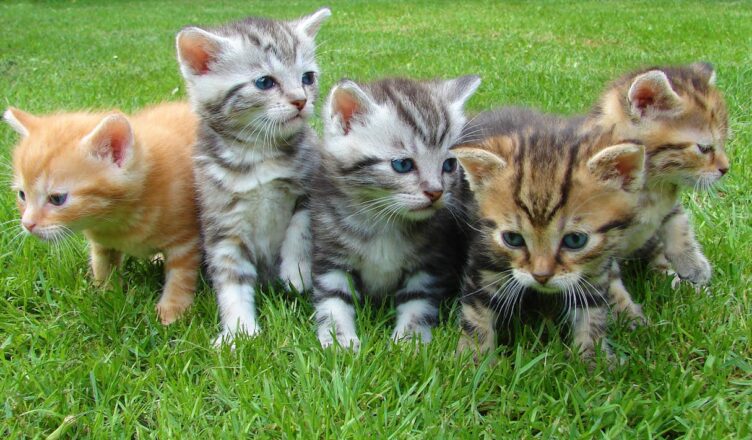Pets can bring joy, companionship, and routine to a senior’s life, promoting emotional well-being and reducing feelings of loneliness. At A1 Senior Living, we highlight the best pet options for older adults based on lifestyle, care requirements, and health benefits.
Top Pet Choices for Seniors:
- Small Dogs: Gentle breeds like Poodles, Shih Tzus, and Cavalier King Charles Spaniels are friendly, easy to manage, and ideal for smaller living spaces.
- Cats: Low-maintenance and independent, cats are perfect for seniors who want companionship without demanding care.
- Birds: Parakeets or canaries are lively and engaging with simple care routines.
- Fish: Quiet and calming, fish provide peaceful company and require minimal upkeep.
- Robotic Pets: A great alternative for seniors with limited mobility, offering comfort and interaction without daily responsibilities.
Dogs
- Small Breeds: Small dog breeds like Pomeranians, Shih Tzus, and Chihuahuas are often suitable because they are easier to manage and require less exercise.
- Calm Breeds: Breeds like the Cavalier King Charles Spaniel and the Bichon Frise are known for their gentle and friendly nature.
- Older Dogs: Adopting an older dog can be a great option as they are usually already trained and less energetic than puppies.
Cats
- Low-Maintenance: Cats are generally low-maintenance pets. They don’t need walks and are usually content with indoor living.
- Independent Breeds: Breeds like the British Shorthair and the Ragdoll are known for their calm and affectionate nature.
Birds
- Small Birds: Birds like canaries and finches are relatively easy to care for and can be great companions.
- Parakeets and Budgies: These birds are small, social, and can be quite interactive without requiring extensive care.
Fish
- Aquarium Fish: Fish can be very soothing to watch and are low-maintenance. Betta fish or a small community tank can be ideal.
Small Mammals
- Hamsters and Gerbils: These small pets require minimal space and care, making them good options for seniors who want a pet but don’t want too much responsibility.
- Guinea Pigs: They are gentle, social, and easy to handle, providing companionship without needing too much space.
Benefits of Pets for Seniors
- Companionship: Pets provide emotional support and companionship, which can reduce feelings of loneliness.
- Physical Activity: Pets like dogs encourage regular walks and physical activity, which is beneficial for overall health.
- Routine and Purpose: Caring for a pet can provide a sense of routine and purpose, enhancing mental well-being.
Considerations
- Allergies: Ensure that the senior is not allergic to the pet they choose.
- Mobility: Choose a pet that matches the senior’s physical capabilities. For example, a senior with limited mobility might prefer a cat or small dog over a large, energetic dog.
- Living Situation: Consider the living environment. Some pets are better suited for apartment living, while others might need more space.
Cost of Pets for Seniors
outlining the estimated costs of owning various pets, including initial setup and ongoing monthly expenses.
| Pet Type | Initial Setup Cost | Monthly Cost | Explanation |
|---|---|---|---|
| Small Dog | $500 – $1,500 | $50 – $150 | Includes adoption/purchase, vaccinations, spaying/neutering, initial supplies (bed, leash, bowls). Monthly costs include food, grooming, and routine vet visits. |
| Medium/Large Dog | $700 – $2,000 | $70 – $200 | Similar to small dogs but with higher costs for food, larger beds, and potentially more grooming. |
| Cat | $300 – $1,200 | $30 – $100 | Includes adoption/purchase, vaccinations, spaying/neutering, initial supplies (litter box, bed, toys). Monthly costs include food, litter, and routine vet visits. |
| Bird (Small) | $100 – $300 | $10 – $30 | Includes cage, initial vet check, toys, and perches. Monthly costs include food and occasional new toys or cage liners. |
| Bird (Parakeet/Budgie) | $150 – $500 | $15 – $50 | Similar to small birds but with higher costs for larger cages and more interactive toys. |
| Fish (Aquarium) | $50 – $200 | $10 – $30 | Includes tank, filter, decorations, and initial fish stock. Monthly costs include food, water treatments, and occasional new fish. |
| Hamster/Gerbil | $50 – $150 | $10 – $20 | Includes cage, bedding, wheel, and initial vet check. Monthly costs include food and bedding. |
| Guinea Pig | $100 – $300 | $20 – $40 | Includes cage, bedding, hideouts, and initial vet check. Monthly costs include food, bedding, and occasional new toys. |
Explanation of Costs
- Initial Setup Cost:
- Adoption/Purchase: This includes the fee for adopting or purchasing the pet. Adopting from a shelter is usually cheaper and often includes some initial vet care.
- Vaccinations and Spaying/Neutering: Essential health care to ensure the pet is protected from diseases and to prevent overpopulation.
- Supplies: Initial costs for necessary supplies like cages, tanks, beds, leashes, bowls, toys, and other items specific to the pet type.
- Monthly Cost:
- Food: Regular food expenses based on the pet’s dietary needs.
- Healthcare: Routine vet visits, medications, and any ongoing health treatments.
- Grooming: Especially for dogs, regular grooming is necessary to maintain health and cleanliness.
- Supplies Replenishment: Ongoing costs for items like litter, bedding, toys, and other consumables.
Overall, the best pet for a senior depends on their personal preferences, lifestyle, and physical condition. It’s always a good idea to spend time with a potential pet before making a decision to ensure a good match.





